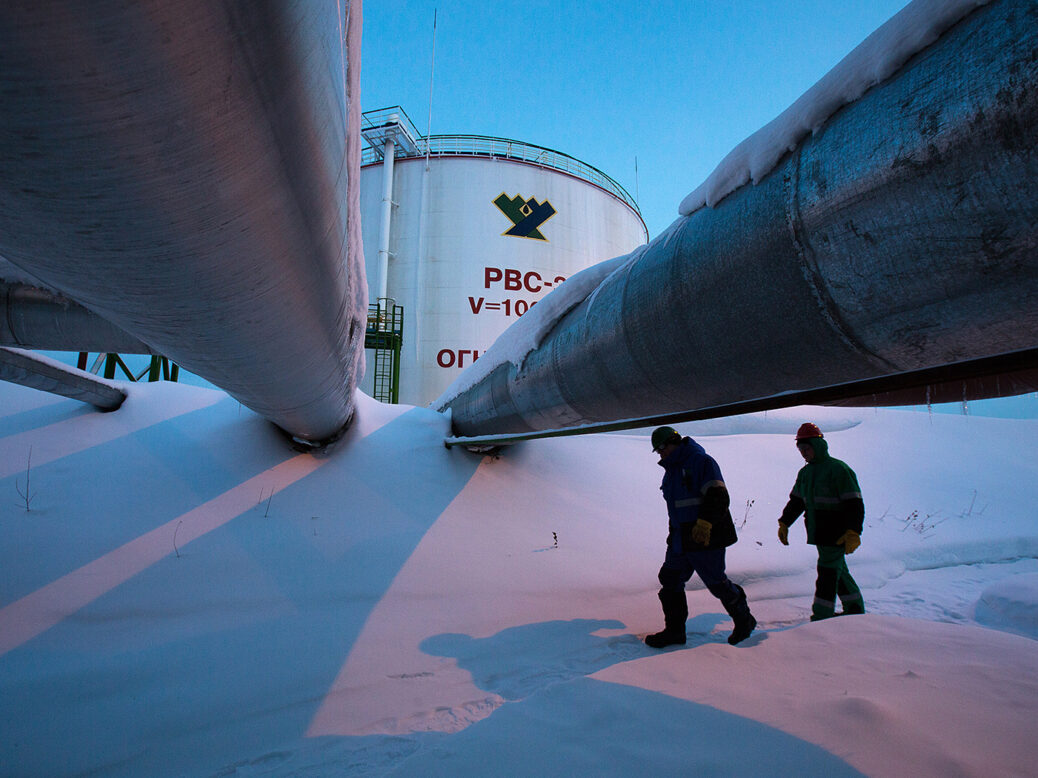
Vladimir Putin has warned that Western sanctions designed to paralyse the Russian financial system are “akin to an act of war”. He’s not wrong. For, as every student of Clausewitz knows, “war is a continuation of policy with other means”. The West cannot, and should not, go to war with Russia over Ukraine – so it is stuck with asset seizures and financial system shutdowns to deter the invasion of Ukraine. But the economic war the West is waging is neither total, nor does it have a clear objective.
By exempting oil, gas and wheat exports, the West has calculated that it can inflict big pain on the Russian economy, with minimal pain on Europe and the US. It is on a similar note that Western governments cannot bring themselves to state how the conflict ends: with Putin at the Hague, or toppled by his inner circle. I fear this is a miscalculation. The reason we need massive and paralysing sanctions, front-loaded to achieve instant effect in Russian society, is that the quicker we impose them, the faster we can hamper Putin’s ability to kill people in Ukraine.
The UK was quick to issue headline sanctions, but slow to implement them – giving the oligarchs plenty of time to sell their football clubs and spirit their camarillas to the Maldives. We could have gone into this conflict with a list of registered “foreign agents” – PR gurus, banks and commercial law firms – ready to roll up once their client’s tanks crossed the border. We could have reformed Companies House, so that the beneficial ownership of Russian oligarchic assets was not hidden. We didn’t because, from top to bottom, it is not just the Tory party but much of the financial elite that is enmeshed in friendship and patronage networks centring on Russia. The Russian oligarchs are well aware of their predicament. They will never again visit Harrods. Outfits purchased for the French Riviera will have to be worn in Vietnam.
[See also: Why the government may be slow to cut off Russian money]
But this doesn’t faze oligarchs. Their position in society fundamentally relies on “economic rent” – the ability to stand atop an oil well, a gas pipe, grain warehouse or a chromium mine like a highwayman with mask and pistol, demanding tributes from everyone who trades there. It is their income that funds the second faction of the Russian elite – the securocrats who have kept Putin in power with muscle, espionage and the occasional vial of nerve agent. Cut off the economic rents and you end the power of both the oligarchs and the securocrats. That’s why we need to move from financial paralysis to sanctioning Russian oil and gas.
That said, we must do so carefully. Oil traders and shipping firms are already dropping Russian deals and cargo. Dockers in Kent refused to unload a boatload of Russian oil. To properly sanction Russian oil and gas, Europe needs to engineer a coordinated switch to renewables, to energy load-sharing, and to alternative sources of oil and gas. This needs to be done in a coordinated way, and fast – two qualities that do not always sit easily together in the developed world’s democracies. However, the alternative is for the military aspect of the conflict to spiral beyond Ukraine’s borders and out of control – the thing we need to stop.
At the outbreak of war in 1939, the British government had no qualms at setting up a “Ministry of Economic Warfare”. Its title at least had the virtue of honesty. Much of today’s political class still doesn’t realise that we have entered a systemic conflict with a raging, doomed dictatorship – and that to deter military aggression, economic pressure has to be focused, relentless and fast.
[See also: Do sanctions and soft power really work?]






